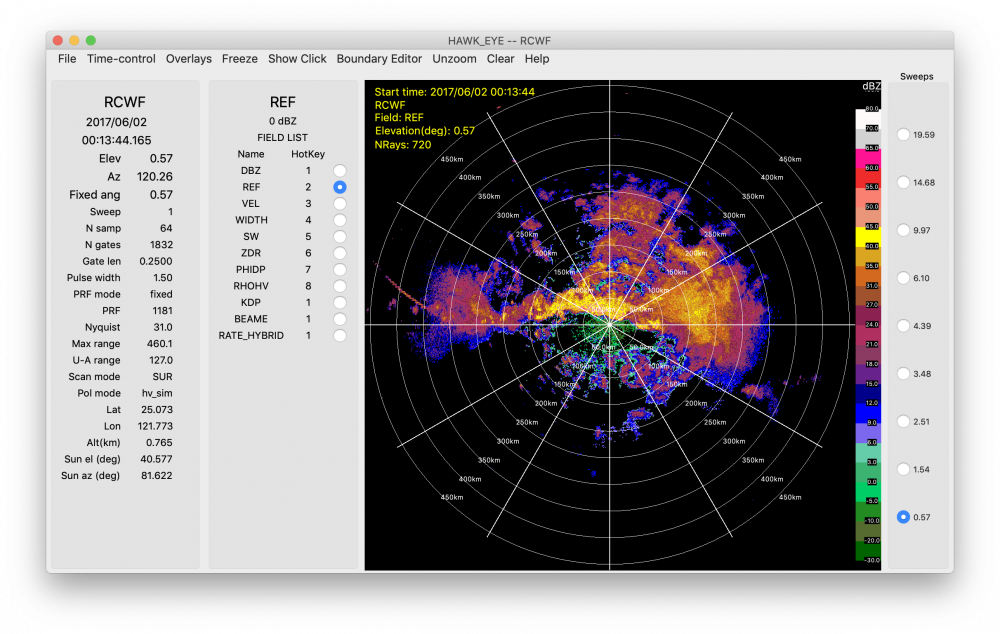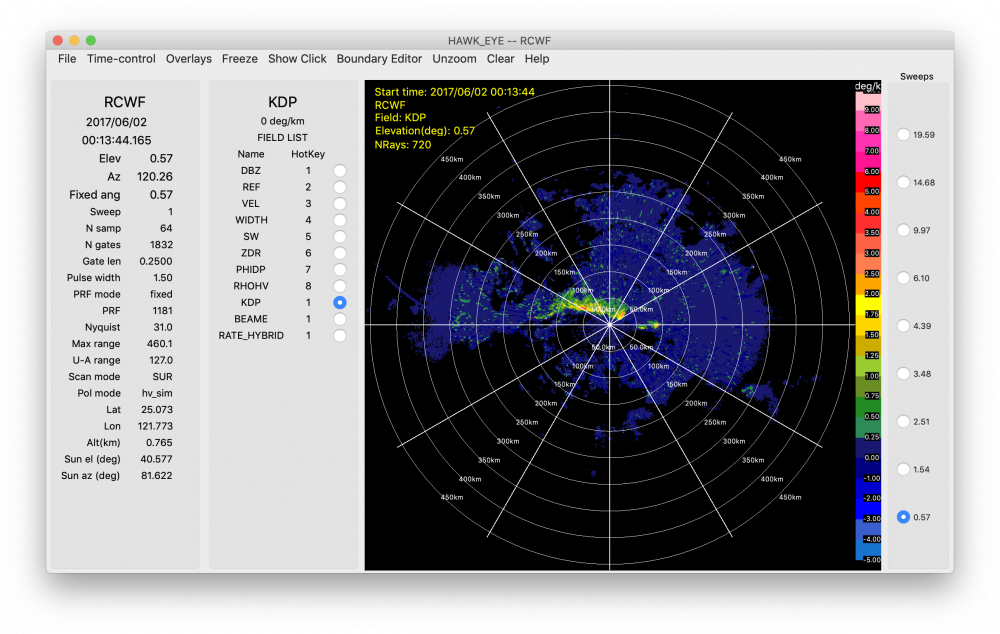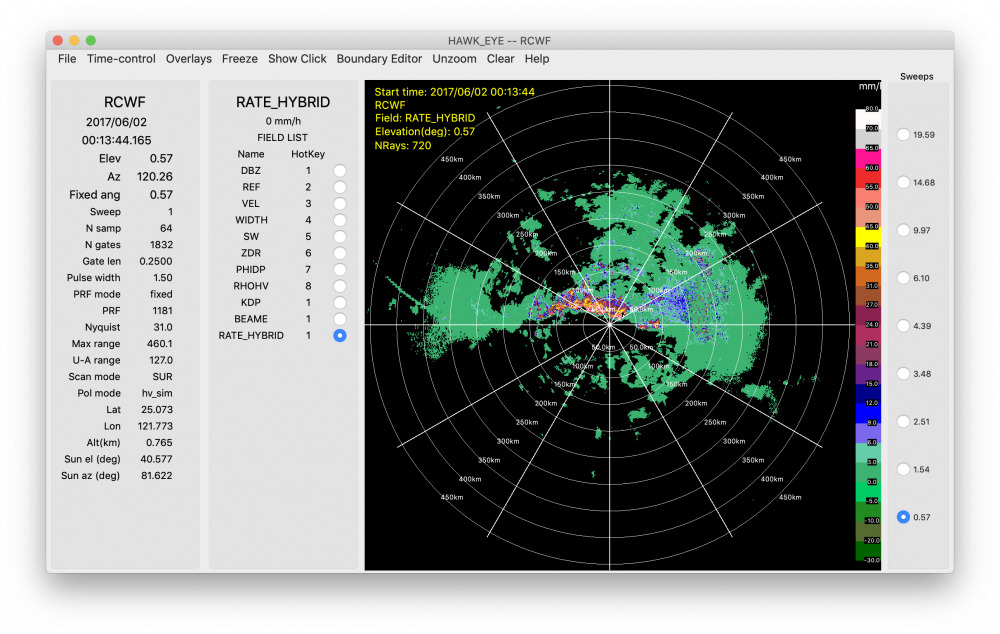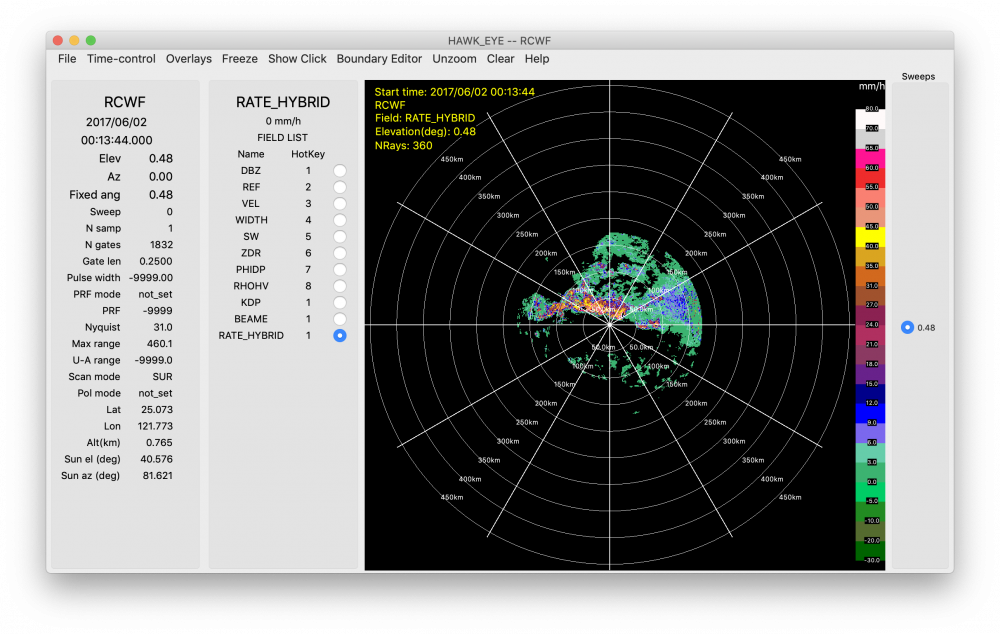Difference between revisions of "Elle basic"
From Lrose Wiki
| Line 18: | Line 18: | ||
export RAW="/path/to/raw/radar/data" | export RAW="/path/to/raw/radar/data" | ||
<ol start="4" style="list-style-type: decimal;"> | <ol start="4" style="list-style-type: decimal;"> | ||
| − | <li>Set the variables in the terminal and set the date</li></ol> | + | <li>Set the variables in the terminal and set the date. Print out the directory structure to make sure it's pointing to the right directory.</li></ol> |
| − | |||
source env_dirs | source env_dirs | ||
source env_vars | source env_vars | ||
export days=“20170602” | export days=“20170602” | ||
| + | echo $HOMED/$PROJ | ||
<ol start="5" style="list-style-type: decimal;"> | <ol start="5" style="list-style-type: decimal;"> | ||
<li>Convert the raw file to a CfRadial file</li></ol> | <li>Convert the raw file to a CfRadial file</li></ol> | ||
Revision as of 23:31, 8 July 2020
Contents
Basic elle tutorial
This workflow will convert a single raw radar file to the CfRadial format and estimate the surface rain rate. Note, the current parameter files are currently optimized to work on Unix systems. This workflow is one way to test that the applications have been installed properly.
Run each program one by one on the command line
- Download the elle_basic.tar.gz file
- Extract contents into the desired directory
tar -zxvf elle_basic.tar.gz
You'll end up with a directory structure that includes files to set environment variables, data required to run some of the programs, the raw radar file, and a sample script that will run all the programs in one go.
- In /elle_basic/env_dirs, edit the directories (note: there is purposely no slash at the beginning of PROJ)
export HOMED="/path/to/home/directory" export PROJ=“path/to/project/radx” export RAW="/path/to/raw/radar/data"
- Set the variables in the terminal and set the date. Print out the directory structure to make sure it's pointing to the right directory.
source env_dirs source env_vars export days=“20170602” echo $HOMED/$PROJ
- Convert the raw file to a CfRadial file
/path/to/RadxConvert -params ./params/RadxConvert.* -f $RAW/$RADAR_NAME/$days/*.raw*
- Run RadxRate to calculate Kdp, the PID, and various rain rates
/path/to/RadxRate -params ./params/RadxRate.* -f ./convert/$RADAR_NAME/$days/*.nc
- Run RadxQpe to estimate the near-surface rainfall using the hybrid method
/path/to/RadxQpe -params ./params/RadxQpe.* -f ./rate/$RADAR_NAME/$days/*.nc
Run programs from a sample script
- Download the elle_basic.tar.gz file
- Extract contents into the desired directory
tar -zxvf elle_basic.tar.gz
You'll end up with a directory structure that includes files to set environment variables, data required to run some of the programs, the raw radar file, and a sample script that will run all the programs in one go.
- In /elle_basic/env_dirs, edit the directories (note: there is purposely no slash at the beginning of PROJ)
export HOMED="/path/to/home/directory" export PROJ=“path/to/project/radx” export RAW="/path/to/raw/radar/data"
- Edit directories in run_radx.sh script (lines 3 and 12)
cd /PATH/TO/elle_basic rdir="/PATH/TO/lrose/bin"
- Make the file executable, if it isn't already
chmod u+x run_radx.sh
- Run shell script/li>
./run_radx.sh
Example output
Shown below are some HawkEye snapshots of data from the files created during each step. Example of the reflectivity field displayed in HawkEye created by RadxConvert.
Example of the Kdp field displayed in HawkEye created by RadxRate.
Example of the hybrid rain rate field displayed in HawkEye created by RadxRate.
Example of the estimated surface rain rate field displayed in HawkEye created by RadxQpe.




